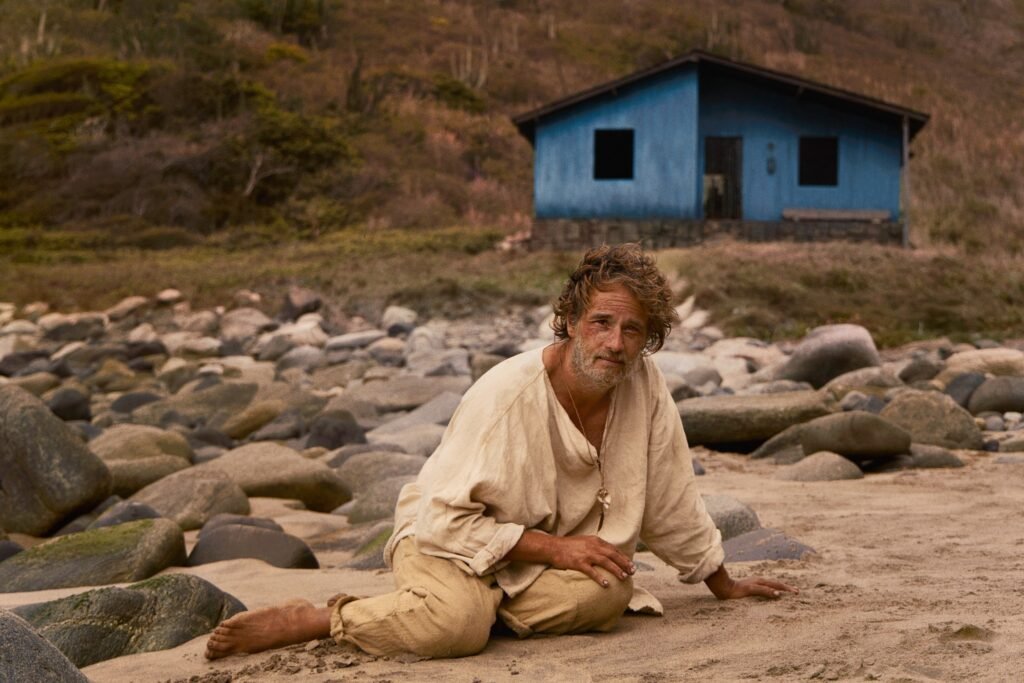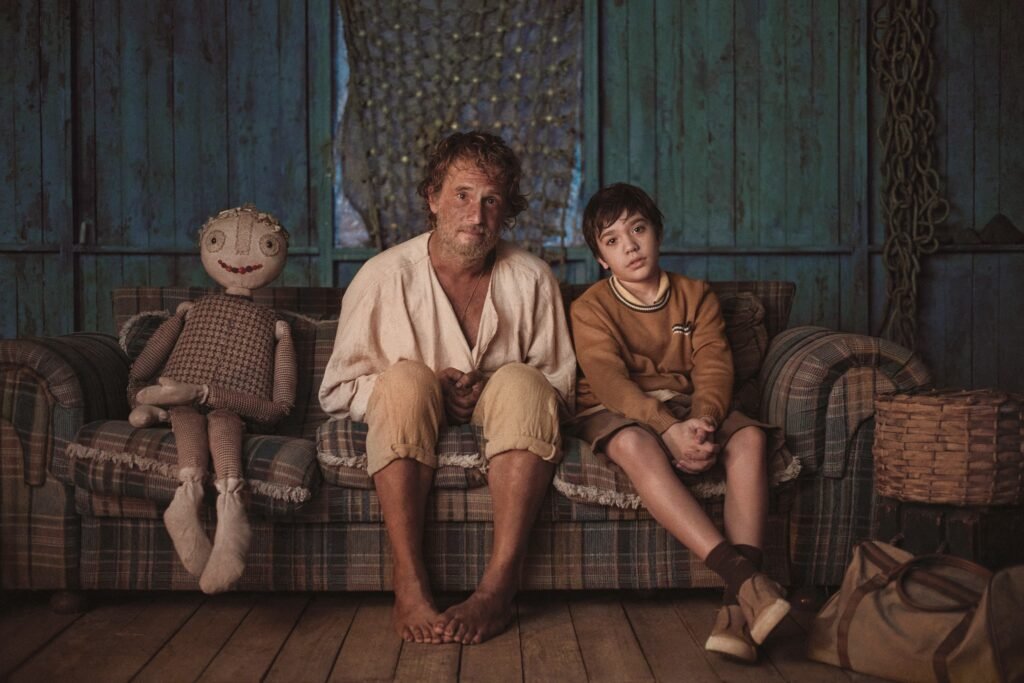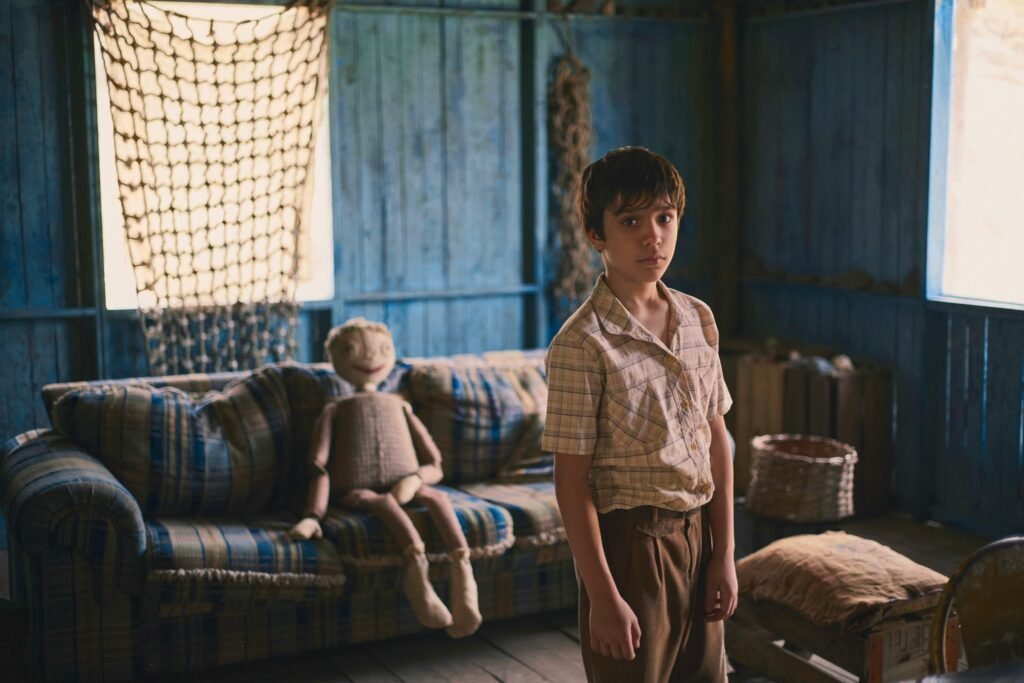The Son of a Thousand Men Review

Director: Daniel Rezende
Date Created: 2025-11-19 21:34
3
The Son of a Thousand Men Review: Netflix’s Brazilian drama O Filho de Mil Homens is directed by Daniel Rezende, based on a novel by Valter Hugo Mãe. Starring Rodrigo Santoro as Crisóstomo, Johnny Massaro as Antonino, Miguel Martines as Camilo, Juliana Caldas as Francisca, Rebeca Jamir as Isaura, Lívia Silva as Isaura Jovem, and Grace Passô, Antonio Haddad, among others, in supporting roles. About 2 hours and 6 minutes long, this movie narrates loneliness, family, and belonging with magical realism and personal connections between people.
The Son of a Thousand Men Review
While watching The Son of a Thousand Men, I was really excited to see how far this movie would go. The main concept of the film that really moves is that family is not necessarily biological but rather something we create intentionally. Crisóstomo, a lonely fisherman, dreams of a kid, and in the case of finding Camilo, a little boy without parents, their bond constitutes the core of this story. The help of Isaura and Antonino, both suffering a lot because of social discrimination, creates a very fragile, select family, little by little. The whole narrative is like a gentle, warm, melancholic, and hopeful hug.

Yet, despite being lyrically warm, the film couldn’t sustain emotional momentum. One of my main issues is that Netflix’s The Son of a Thousand Men often seems to care more about its aesthetic than about the inner life of the characters. The cinematography is always great, with the seaside village, the sea, and the light on the water, but at times this beauty gets in the way of emotional depth. Instead of allowing scenes to build organically, Rezende has a tendency to present moments as if they were postcards, as if he were taking snapshots of a dream instead of shooting live dialogue.
The screenplay’s dealing with social prejudice and intolerance, in particular, is what feels half-baked. There are powerful scenes, such as that where the grandfather tells the kid to avoid “sissies” and “dykes” or Antonino’s turmoil about his orientation, but they are conveyed in such a delicate and graceful manner as to strip them of the bitter, torturous quality which they ought to have. The film does not hide its message of the impermanence of hate and love’s victory as it is straightforward, almost more than that, at times. I got the impression several times that I was being preached at rather than told a story.

When I think about Netflix’s The Son of a Thousand Men, tempo is yet another double-edged weapon. There are moments of complete silence, long close-ups, and slow-paced cutting. While they create a meditative mood, they can be tiresome at times. In highly emotional scenes, the movie tends toward melodrama. For example, Antonino’s wedding is very suspenseful, but the way it was portrayed seemed exaggerated, as if the camera tried too hard to make the audience feel something profound.
Also Read: Champagne Problems Review: Predictable Holiday Romance with Flat Storytelling and Forced Chemistry
Rodrigo Santoro is the emotional centre of the movie. He plays Crisóstomo, tough outside, soft inside, and does so with subtly moving nuances. He gives the character a quality that is opposite to grounding, yet is so soft that the more fanciful or dream-like aspects of the script are not lost. So is the performance from Johnny Massaro as Antoino: he is very strong in that he is exposed, torn, and burdened with his mother’s desires. Miguel Martines, as Camilo, brings in childishness and a certain amount of consistency; he is the one whose being creates a gentle spot in the otherwise tense storyline.

Overall, the character development has its ups and downs. Isaura’s journey, which had the potential to be incredibly powerful, is underdeveloped for my taste. The minor characters, many of whom represent the conservative and judgmental mentality of the town, are very interesting as symbols, but seldom do they rise above that to be full human beings on screen. While the film’s ambition within the theme of “otherness” is admirable, the price is sometimes a less powerful emotional impact.
In philosophical terms, the stance of the film The Son of a Thousand Men is quite bold: “We are born children of a thousand fathers and a thousand mothers.” This universal parenthood idea is so nice in concept, but there are points in time when such faith becomes so bright, especially in the ever-changing relationships between Crisóstomo, Camilo, Isaura, and Antonino. The way this theme is shown throughout the story sometimes resembles more of an ornament than a naturally lived experience.

I also liked the magical realist visual effects, such as glowing shells, a golden light around the characters, and dream-like sequences, but at times these effects seem overdone. While they do not always bring out the emotional truth, often they appear to be there for decoration alone, and the film seems to be imparting more importance to style than to substance. The fantasy-like scenes are a beauty to watch, yet they do not always justify their dramatic place in the story.
On the musical aspect, Fábio Góes’ score is truly one of the great successes here. The soft, melancholic sounds support the emotional centre of the movie without overdoing it. The music heightens the feeling of longing, the uncertainty of hope, and the slow, uncomfortable establishment of relationships. His music is one of the most powerful resolutions during the quieter, almost dialogue-free scenes.

Where Brazilian drama movie The Son of a Thousand Men really gets its power from is through its sincerity. Rezende very clearly has a warm-hearted idea-he believes in empathy, connection, and the possibility of making family beyond the limits set by society. Those are really good, and they do get through. The only problem is, the execution side doesn’t always keep up with the ambition. Instead of deep and rich character studies, we receive impressionistic glimpses; instead of tension, we often have calmness.
Netflix The Son of a Thousand Men Review: Summing Up
It’s a movie that feels, at the end, much like a nicely encased book: it’s exquisite, lyrical, and full of visual richness, but it doesn’t fully open up to you for the emotional journey. It is more of a meditative painting than a living portrait. With aims so lofty and a visual style most certainly breathtakingly beautiful, the emotional impact does seem to have been lessened somewhat. The narrative is too much weighted in favour of aesthetics and moral clarity, at times at the cost of character complexity and raw conflict.
Also Read: The Carman Family Deaths Review: Chilling and Baffling Plunge into a Family Tragedy
